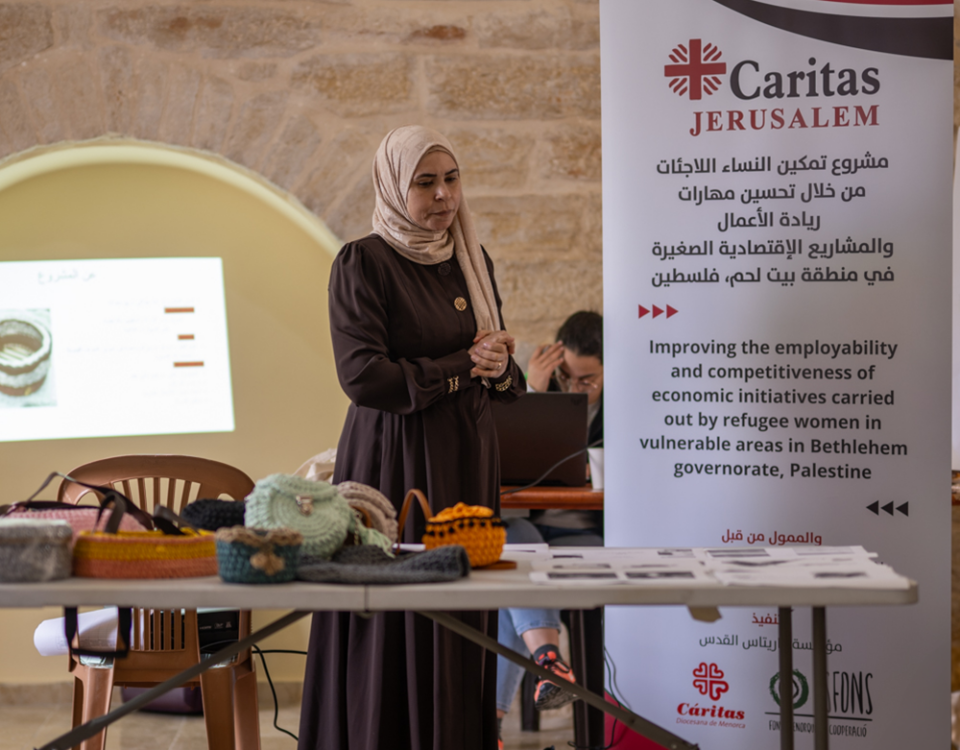
The program, located in Jenin Governorate in Palestine, aims at enhancing the resilience and well-being of rural communities with a focus on youth and women. The approach is based on a “triple nexus” linking 3 complementary areas: social cohesion, rural economy, and disaster risk reduction. It proposes to foster local dynamics for improved economic development and social cohesion. Local communities with their specific heritage and own resources, are indeed the main actors of change and the first responders in emergencies. First, Caritas Jerusalem will set up and accompany 4 Local Action Groups (LAGs), providing a dialogue framework for all local stakeholders including the most vulnerable. The LAGs’ members will exchange on common issues, but also formulate and defend their rights and explore concrete solutions. They will be offered grants for common good projects and advocacy support to increase citizens’ quality of life and their capacities to mobilize for change. Second, the objective is to increase and diversify rural communities’ incomes and ensure their sustainability. Farmers’ organizations and CSOs will be supported with organizational and investment support. The employability of youngsters will be strengthened by providing vocational training, internship opportunities and access to hubs for entrepreneurship and innovation. Third, Palestine is the scene of a chronic humanitarian crisis. The security and mobility of its inhabitants are being threatened and their land is under the risk of confiscation. Communities will have better resources to analyze, mitigate and recover from crises. The LAGs will update and coordinate municipal contingency plans while farmers’ organizations will receive equipment for improved emergency preparedness. Eventually, learning will be ensured by a horizontal dialogue between the LAGs and through action research on agroecology to demonstrate its relevance for food security and emergency preparedness and peer exchanges.
Results:
- Rural communities ‘capacities, including the most vulnerable, are reinforced to be able to federate, formulate, exercise, and defend their rights in Jenin Governorate
- Household incomes, especially of youth and women in Jenin Governorate have been increased diversified and are sustainable.
- Communities in Jenin Governorate, especially the vulnerable groups, have better resources to prepare for, mitigate, resist, and recover from crises and disasters
- Communities in Jenin and program partners are strengthened by the capitalization of their actions, as well as exchanges and learning with peers.



